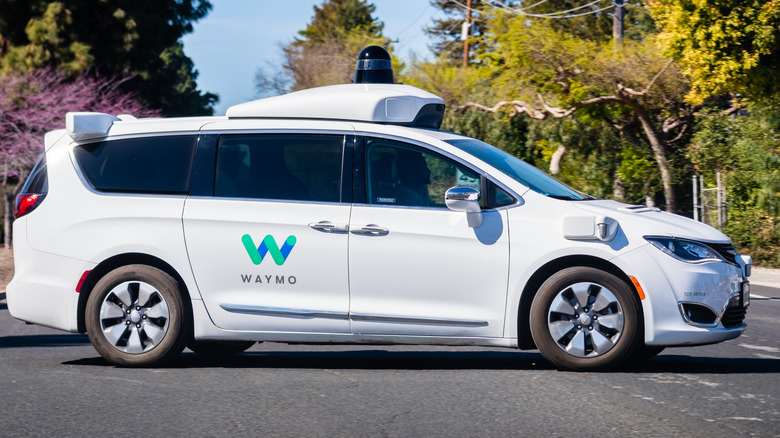Waymo Halts Autonomous Truck Work To Focus On Self-Driving Taxis
Waymo has been making big strides in the autonomous trucking industry over the past few years, but expect that momentum to slow down for the time being. Instead, the Alphabet Inc. company will be shifting its focus to Waymo Driver, its fully autonomous tech that is generalizable and designed for a much broader scale. Waymo Driver is intended to be integrated into multiple platforms and vehicle types for a variety of commercial applications — not just trucking — like deliveries, personal transport, and self-driving taxis.
It's that ride-hailing sector that particularly has Waymo switching gears. Waymo says it's responding to the "tremendous momentum, and substantial commercial opportunity" presented by autonomous ride-hailing, thanks in part to major AI and machine learning improvements. According to Waymo, rider demand and the self-driving taxi business are especially booming in Los Angeles, Phoenix, and San Francisco.
Waymo Driver is already one of the foremost technologies for autonomous driving, and the most experienced and expansive. It's been tested in 13 states, with billions of miles of simulator experience, and millions of miles on public roads. Unlike Driver Assist, it's fully autonomous — Waymo even completely replaced steering wheels with touchscreens. By "doubling down" on its efforts at the expense of its autonomous trucking projects, Waymo is looking to advance Waymo Driver to the point where it can become commonplace on the road, including in taxis across the country.
Waymo hasn't completely turned its back on autonomous trucking
Waymo had been developing a specific autonomous truck platform to help revolutionize the trucking industry. In 2020, it began a collaboration with Daimler Truck North America (DTNA) to equip the Freightliner Cascadia truck with Level 4 autonomy. In a statement, Waymo says that, with its increased focus on Waymo Driver, the company will "push back the timeline on our commercial and operational efforts on trucking, as well as most of our technical development." However, in that same statement, Waymo makes it clear that it will continue working with Daimler on an autonomous trucking platform.
By ramping up its efforts to make its Driver a mainstream, successful enterprise, Waymo is hoping it will then be in a better position by having both the resources and technical groundwork to do the same for autonomous trucking. "Advancing Waymo Driver capabilities," Waymo states on its company blog, "especially on freeway, will directly translate to trucking and benefit its development efforts."
Waymo Driver will also serve as an early guinea pig for government regulation when it comes to self-driving vehicles sharing public roads. Autonomous trucks not yet fully developed will be able to take advantage of whatever insights and advancements Waymo Driver vehicles make in regard to that extremely tricky regulatory landscape. "We continue to see a significant future commercial opportunity for our trucking solution alongside other commercial applications of the Waymo Driver," states Waymo. Self-driving taxis aren't killing autonomous trucking, but helping them come to fruition. It may just take a little longer for self-driving trucks to hit the road.

